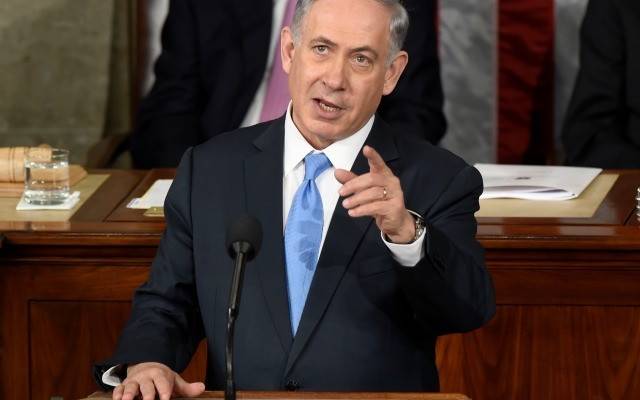Despite criticism of Netanyahu’s speech to Congress against the deal with Iran last March, he apparently succeeded in conveying his message to the American public, a poll suggests.
Prime Minister Benjamin Netanyahu may have held large sway over US adults’ largely negative perception of the nuclear deal the Obama administration signed with Iran last year, Gallup suggested in new findings about the low approval ratings the program achieved among Americans.
Gallup also said Republicans’ strong opposition to the deal — Republican leaders invited Netanyahu to speak about the threat posed by Iran in March, before the deal was signed in July — probably contributed to framing negative public opinion around it.
According to the poll, 57% of Americans disapprove of the nuclear deal, reached after years of negotiations with Iran, the US, the UK, Russia, China, France and Germany — the P5+1 countries.
Just nine percent of Republicans said they supported the agreement, compared to 51% of Democrats who did. Essentially, the agreement with Iran places certain restrictions and international supervision on Iran’s nuclear program in exchange for the lifting of many of the international sanctions against the Islamic Republic.
Iran continues to have an abysmal rating among Americans — a mere 14% said they held a positive view of the Islamic Republic. Some three quarters of Americans believe Iranian nuclear weapons will pose a strategic threat to vital US interests in the next 10 years, according to Gallup.

Iranian demonstrators burn a US flag during an annual rally in November 2015.(AP/Vahid Salemi)
The last favorability poll of Netanyahu himself, taken just after his congressional address last March, showed a 38% favorable rating and a 29% unfavorable one. Americans’ views of the Israeli prime minister dipped by nearly 10 percentage points after he spoke in Congress, compared to the month before.
Meanwhile, a poll last November found two thirds, or 68%, of Iranian adults supported the deal their government signed with world powers including the US, with nearly the same number believing it could help their personal economic situation.
Israel views an Iran that possesses a nuclear weapon as an existential threat to the Jewish state. Once announced, Netanyahu called the deal — hailed by the Obama administration as a victory for diplomacy over war — a “historic mistake.” Israeli leaders across party lines denounced the deal.
By: The Algemeiner










